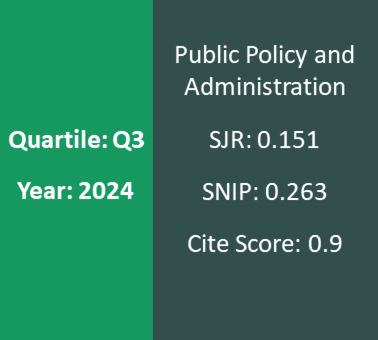Fiscal Transparency and Accountability in the Public Management Methodology
Keywords:
fiscal transparency, fiscal accountability, the system of fiscal transparency and accountability, the standard of fiscal transparency.Abstract
The growing recognition of the importance of strengthening the civic society to perform its designated role has
been an important factor in shaping the debate on fiscal transparency. The series of financial crises experienced
during the last decades have raised two issues about public policy making, and the need to reduce high vulnerability.
Public policy making, in general, and the national fiscal system, in particular has become a unit of analysis.
Transparency enables all stakeholders in a country to see the structure and functions of the government, its
policy intentions and fiscal projections, and accounts for past periods. The main purpose of opening these windows
is to render those inside accountable and answerable for their decisions and actions. Accountability is the obligation
to render an account for the responsibility conferred.
Fiscal transparency, reflecting a system of well organized windows on public policy making and policy implementation,
is not an end in itself, but is a means contributing to effective and comprehensive accountability that aims
at securing full answerability from governments and their officials. Greater fiscal transparency is seen as a means of
improving economic governance arrangements in ways, which, by promoting fiscal stability, will in turn improve the
functioning of the government sector and facilitate improvements in the economic environment for the private
sector.
Accountability imposes discipline on national authorities by ensuring that the authorities are answerable to the
general public and market participants for their decisions. Accountability thereby lessens the likelihood that national
authorities will make imprudent policy decisions. More particularly, transparency and accountability should
result in better–informed public debate about the design and objectives of fiscal and monetary policies and thereby
strengthen the credibility and public understanding of macroeconomic policies and choices, as well as the quality of
decisions taken. To facilitate the efficient allocation of resources and the effectiveness of public policies, fiscal and
monetary authorities should be transparent about their policy objectives and their strategies for achieving them.
Transparency helps the general public and market participants hold national authorities accountable for their policy
decisions.
Fiscal transparency and accountability are crosscutting attributes of all public sector financial structures and
processes. They can be enhanced through a public financial management improvement program.
This article explores the meaning of fiscal transparency, by examining its structure and evaluating criteria for
assessing the degree of fiscal transparency. It explores the link between transparency and accountability, developing
the distinction between event and process transparency. This paper examines financial aspects of accountability,
explains the growing demand for fiscal accountability, and details the benefits and costs.





